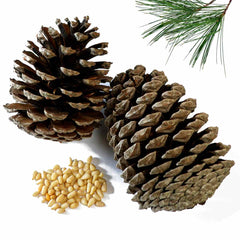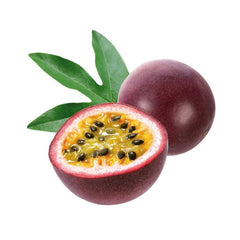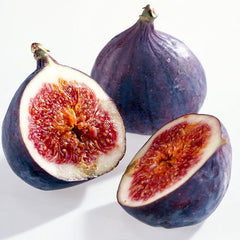What Does Iris Smell Like?
As An Amazon Associate We Earn From Qualifying Purchases At No Extra Cost To You

Embark on a fragrant journey to the world of iris, an exquisite flower known for its elegant and sophisticated aroma. Join us as we explore the question: What does iris smell like?
What Does Iris Smell Like? Unraveling the Elegance of Iris Fragrance
The fragrance of iris is a mesmerizing symphony of floral, powdery, and earthy notes that captivate the senses with their timeless elegance. Let's delve into the enchanting world of iris and uncover the olfactory poetry that defines its essence.
Floral Opulence: A Bouquet of Iris Blooms
Approaching iris, the first olfactory impression is a burst of floral opulence. Imagine the delicate petals of iris blooms, exuding a sweet and powdery aroma reminiscent of a blooming garden in spring. The floral notes in iris fragrance create an air of sophistication and charm, making it a coveted choice in perfumery.
Powdery Softness: Ephemeral Elegance
One of the defining characteristics of iris scent is its powdery softness. The fragrance unfolds like a fine dusting of talcum powder, adding an ephemeral elegance to the overall composition. This powdery facet contributes to the timeless and comforting nature of iris, making it a classic and enduring note in the world of perfumery.
Earthy Undertones: Rooted in Nature
Beneath the floral and powdery layers, iris reveals its earthy undertones. Picture the scent of the iris rhizome, the plant's underground stem. This earthiness grounds the fragrance, providing depth and a connection to the natural world. The combination of floral, powdery, and earthy elements creates a harmonious and well-balanced olfactory experience.
Mystical Aura: Iris in Myth and Symbolism
Beyond its enchanting aroma, iris holds a mystical aura in mythology and symbolism. In Greek mythology, Iris was the messenger of the gods and the link between heaven and earth. The flower named after her carries an ethereal quality, embodying a connection to the divine. The fragrance of iris, with its timeless and otherworldly charm, reflects this mystical symbolism, adding a layer of fascination to its scent.
Versatility in Perfumery: Iris as a Chameleon Note
Iris is a versatile note in perfumery, acting as a chameleon that adapts to various compositions. Whether featured as a star ingredient or playing a supporting role, iris seamlessly blends with other floral, fruity, or woody notes. Its versatility allows perfumers to create a wide range of fragrances, from powdery and delicate to bold and sophisticated.
Luxurious Presence: Iris in High-End Fragrances
Iris is often associated with luxury and is a staple in many high-end and niche fragrances. Its regal and refined character makes it a sought-after note in perfumes that exude opulence and exclusivity. From classic floral bouquets to modern avant-garde creations, iris adds a touch of sophistication to fragrances that stand the test of time.
Factors Influencing the Scent of Iris Fragrance Oil
Iris fragrance oil is a carefully crafted composition designed to capture the delicate and multifaceted aroma of the iris flower. Here are several factors that contribute to the luxurious and elegant scent of iris fragrance oil:
Fragrance Composition: Iris fragrance oil is a skillful blend of various aromatic compounds, carefully chosen to replicate the complex scent of iris. Perfumers use a combination of synthetic and natural ingredients to achieve the desired olfactory profile.
Iris Absolute: At the heart of the fragrance lies iris absolute, an extraction from the iris rhizome. This precious material contributes to the powdery and earthy facets of the fragrance, creating an authentic iris experience.
Synthetic vs. Natural Components: Iris fragrance oil often combines both synthetic and natural ingredients. The use of synthetic components allows for consistency in scent, while natural extracts contribute depth and nuance to the fragrance.
Extraction Method: The method used to create iris fragrance oil, whether through steam distillation or solvent extraction, plays a crucial role in defining the aromatic profile. Specific extraction methods contribute to the faithful recreation of the iris scent.
Additional Floral and Woody Notes: To enhance complexity, fragrance oils may include additional floral or woody notes that complement the iris. These notes contribute to the overall bouquet, creating a rich and layered fragrance.
Quality of Ingredients: The quality of raw materials, including the source of iris absolute, directly influences the freshness and authenticity of the iris scent in the fragrance oil.
Perfumer's Artistry: The expertise and creativity of the perfumer are vital. Perfumers skillfully balance different components, creating a distinctive iris fragrance that captures the essence of this elegant flower.
Regulatory Compliance: Adherence to regulatory standards and restrictions on certain fragrance ingredients is crucial. Compliance with safety guidelines ensures that the iris fragrance is safe for use.
Usage in Products: Iris fragrance oil can be incorporated into various products, including perfumes, candles, room sprays, and bath products. The interaction with other ingredients in specific product formulations can influence how the iris scent is perceived.
Product Type and Concentration: The concentration of iris fragrance oil in a product affects the strength and longevity of the scent. Higher concentrations may be suitable for perfumes, while lower concentrations work well for candles, soaps, or room sprays.
Storage Conditions: Proper storage conditions for iris fragrance oil, both before and after formulation, are essential to maintain its stability and scent. Storing it in a cool, dark environment helps preserve the freshness of the fragrance.
Consumer Preferences and Trends: Formulations of iris fragrance may adapt to changing consumer preferences and market trends. The popularity of floral scents or unique blends may influence product formulations.
Artisanal vs. Commercial Production: Differences between artisanal and commercial production of iris fragrance oil may impact ingredient sourcing, formulation, and overall quality. Artisanal methods may emphasize craftsmanship and unique blends.
Post-Formulation Processing: Additional processes, such as aging or filtering after the formulation of the fragrance oil, may influence the final scent and contribute to the desired characteristics.
Exploring different formulations of iris fragrance oil allows consumers to experience a range of elegant and sophisticated scents reminiscent of the timeless iris flower. Individual preferences play a significant role in selecting the perfect iris fragrance for various applications.
What to Look for When Choosing Iris Fragrance Oil
Selecting an iris fragrance oil allows you to indulge in the luxurious and sophisticated aroma of iris. Whether used in perfumes, candles, or personal care products, consider these factors to ensure you choose a high-quality and authentic iris fragrance oil:
Floral Authenticity: Seek an iris fragrance oil that authentically captures the fresh, floral, and powdery scent of real iris blooms. Look for a fragrance that embodies the unique floral notes characteristic of quality iris.
Natural vs. Synthetic: Determine whether the fragrance oil is derived from natural sources or is synthetically produced. Natural iris oils can provide a more nuanced and realistic scent, closely resembling the aroma of actual iris flowers.
Blend Ingredients: Check the blend of ingredients in the fragrance oil. A well-crafted combination of natural and synthetic components can contribute to a balanced and long-lasting iris fragrance.
Intensity Level: Consider the intensity level of the iris fragrance. Some may prefer a subtle and elegant scent, while others may desire a more pronounced and sophisticated aroma. Look for a fragrance that aligns with your desired level of intensity.
Versatility: Choose a fragrance oil that is versatile and suitable for various applications. Whether used in perfumes, candles, lotions, or diffusers, versatility allows you to enjoy the sophisticated iris scent in different settings.
Packaging: Assess the packaging of the fragrance oil. Opt for a bottle that is dark or opaque to protect the oil from light exposure, preserving its freshness and preventing deterioration over time.
No Residue or Discoloration: Ensure that the iris fragrance oil leaves no residue or discoloration when incorporated into different products. A high-quality oil should seamlessly integrate into various mediums without causing unwanted effects.
Manufacturer Reputation: Research the reputation of the manufacturer or brand. Choose well-established brands with positive reviews, as they are more likely to produce reliable and high-quality fragrance oils.
Testing Options: Look for fragrance oils that offer testing options or sample sizes. This allows you to experience the scent firsthand before committing to a larger quantity, ensuring it aligns with your preferences.
Ethical and Sustainable Practices: Consider the manufacturer's commitment to ethical and sustainable practices. Brands that prioritize responsible sourcing and environmentally friendly production contribute to a more conscientious choice.
By considering these factors, you'll be better equipped to choose an iris fragrance oil that not only aligns with your preferences but also ensures a high-quality and sophisticated olfactory experience in your chosen applications.
Where to Find Reputable Iris Fragrance Oils
Discovering a high-quality iris fragrance oil allows you to infuse your surroundings with the timeless elegance of this captivating flower. Here are some sources where you can find reputable iris fragrance oils:
Specialty Perfume Supply Stores: Explore specialty stores dedicated to perfume-making supplies, as they often carry a variety of fragrance oils, including unique scents like iris. These stores may offer options suitable for crafting your signature perfumes.
Online Fragrance Oil Retailers: Browse reputable online platforms specializing in fragrance oils. Websites and retailers dedicated to aromatherapy, perfume making, or DIY crafting may have an extensive selection of iris fragrance oils. Check product descriptions and customer reviews for authenticity and quality.
Artisanal or Handmade Markets: Attend artisanal markets or craft fairs where independent sellers showcase handmade products. Artisan vendors may create unique and carefully crafted iris fragrance oils, providing an opportunity to explore distinct options.
Local Essential Oil or Perfume Shops: Specialty shops focusing on essential oils or perfumes may carry iris fragrance oils. These stores often prioritize high-quality scents and may offer a range of unique and floral aromas.
Online Marketplaces: Platforms like Etsy or other online marketplaces featuring handmade or artisanal products can be sources for iris fragrance oils. Look for sellers with positive reviews and detailed information about their products.
Aromatherapy Stores: Aromatherapy stores often carry a variety of fragrance oils for different applications. Inquire about the availability of iris scents to add a sophisticated and floral aroma to your living space.
Local Farmers' Markets or Herbal Shops: Check with local farmers' markets or herbal shops that specialize in natural products. Some of these establishments may offer fragrance oils with botanical scents, including iris.
Specialty Candle and Soap Supply Stores: Explore specialty stores dedicated to candle-making and soap supplies, as they often carry a variety of fragrance oils. These stores may offer options suitable for crafting candles and soaps with the luxurious scent of iris.
Word of Mouth: Seek recommendations from friends, family, or members of fragrance communities for trusted sources of iris fragrance oils. Personal experiences and suggestions can guide you to reputable suppliers known for quality and authenticity.
Check Ingredients and Descriptions: Before making a purchase, carefully read product descriptions and check ingredient lists for iris fragrance oils. Authentic and reputable sellers provide clear information about the composition and intended use of their products.
Note: Iris fragrance oils can bring a touch of floral elegance to your DIY projects. Ensure that the fragrance oil you choose aligns with your intended use, whether it's for perfumes, candles, diffusers, or other creative endeavors. Follow safety guidelines provided by the manufacturer for proper usage.
20 Questions and Answers about Iris:
-
What is IRIS in perfumery?
- IRIS, also known as orris, is a botanical ingredient used in perfumery. It comes from the rhizomes of the iris plant.
-
How is IRIS extracted for perfumery?
- The rhizomes of the iris plant are dried and ground to obtain orris butter or orris oil, which are then used in perfumes.
-
What does IRIS smell like?
- IRIS has a delicate, powdery, and slightly sweet aroma. It is often described as elegant and sophisticated.
-
Is IRIS a common note in perfumes?
- Yes, IRIS is a popular and classic note in perfumery, frequently used in various fragrances.
-
What are the different types of IRIS extracts used in perfumery?
- Iris absolute, orris butter, and orris oil are the main types of extracts derived from iris rhizomes and used in perfumery.
-
How does IRIS contribute to a fragrance composition?
- IRIS adds a powdery, floral, and sophisticated touch to fragrances. It is often used in both men's and women's perfumes for its versatile and timeless appeal.
-
Are there different varieties of iris used in perfumery?
- Yes, various species of iris plants contribute to perfumery, with Iris germanica and Iris pallida being commonly used.
-
Can IRIS be a base note in perfumes?
- Yes, orris butter derived from iris is often used as a base note in perfumes, contributing to the fragrance's lasting power.
-
Are there any perfumes famous for their use of IRIS?
- Chanel No. 19 and Dior Homme are well-known perfumes that prominently feature IRIS.
-
Does IRIS combine well with other fragrance notes?
- Yes, IRIS blends well with a variety of notes, including florals, woods, and oriental accords, making it a versatile ingredient for perfumers.
-
Is IRIS used more in niche or mainstream perfumery?
- IRIS is found in both niche and mainstream perfumery, showcasing its widespread popularity.
-
Can IRIS be synthetically produced for perfumery?
- Yes, synthetic iris compounds are often used in perfumery to replicate the natural scent of iris and provide a cost-effective alternative.
-
What are some common perfume families where IRIS is a key note?
- Floral, powdery, and woody fragrance families often feature IRIS as a key note.
-
Does the geographic origin of IRIS affect its fragrance profile?
- Yes, the geographic origin can influence the scent profile of IRIS, with variations in aroma depending on factors like soil and climate.
-
Can IRIS be used in natural perfumery?
- Yes, natural perfumers often use iris extracts in their creations, valuing its natural and elegant fragrance.
-
Does IRIS have any therapeutic or aromatherapy properties?
- In aromatherapy, IRIS is sometimes associated with calming and soothing effects, but it is primarily valued for its fragrance in perfumery.
-
Are there any sustainability concerns related to the harvesting of iris for perfumery?
- Sustainable harvesting practices are essential to ensure the long-term availability of iris. Some perfumers work towards responsible sourcing and ethical practices.
-
How long has IRIS been used in perfumery?
- IRIS has a long history in perfumery, dating back centuries. Its use can be traced to ancient civilizations.
-
Can IRIS be found in other beauty and cosmetic products?
- Yes, IRIS is not limited to perfumery and can be found in various beauty and cosmetic products, including soaps, lotions, and creams.
-
Is IRIS a versatile note suitable for all seasons?
- Yes, IRIS's versatility makes it suitable for all seasons, and it can be found in fragrances designed for both warm and cool weather.
Buy Perfumes - Best Online Retailers
Click For Affordable Inspired Perfume Alternatives
Click For The Best Niche Perfumes & Decants
Pheromone Perfumes - Confidence, Attraction & Appeal - Click For More
Home Fragrances & Candle Warmers - Click To Scent Up Your Spaces Today!



